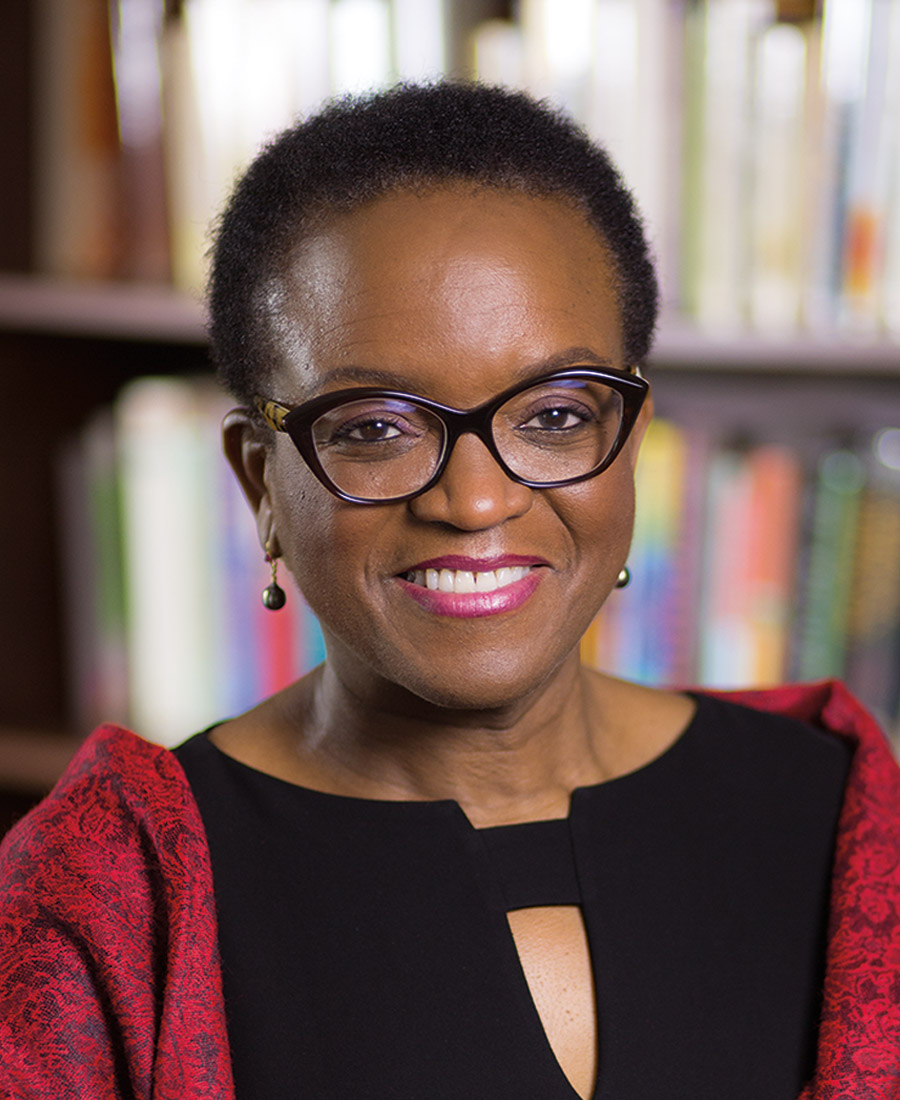
Democracy Under Duress
“Some people portray the role of colleges as a private good, simply preparing students for the workforce,” Smith and Alger wrote. “But our institutions are in the business of developing and disseminating knowledge, and instilling in our students the skills and abilities that enable them to contribute to creating a more just and inclusive democracy.”
Making Their Voices Heard
The Get Out the Vote committee once again met its charge of getting students to the polls — and, increasingly this year, to mail and drop boxes — for November’s general election. Comprising faculty, staff, and students, GOTV met students where they were, whether online, in the classroom, or elsewhere on campus.
“From promoting the importance of participating in the democratic process, to helping students navigate the complexities of registering and voting amid the COVID-19 crisis, to organizing [committee-guided walks to the polls], the members of the GOTV committee served the College and our democracy well,” President Valerie Smith wrote the day after the election. “Collectively, our community committed extraordinary energy to fostering an environment of civic engagement so that people could make their voices heard.

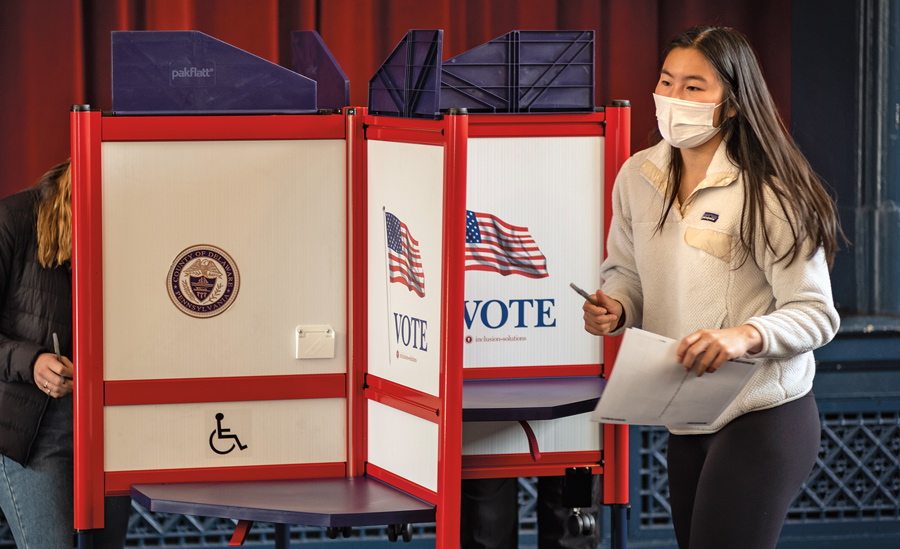
Getting the Word Out
The committee also produced videos from President Valerie Smith as well as one from faculty and students on why they consider it important to vote; provided voting information at Orientation and, during the semester, at tables outside Sharples Dining Hall; presented information on the voting effort at a faculty meeting; visited academic classes to get the word out; partnered with Athletics to achieve 100% voter registration among athletes; issued a survey to gauge student voting characteristics that drew responses from nearly half of the student body; and more.
Navigating the Process

To boost inclusivity, President Valerie Smith designated Election Day as a College holiday this year: No classes were held, and most staff members were able to take off.
The Get Out the Vote committee also offered students free stamps for voting purposes, sent members to the Dean Bond Rose Garden on Election Day to help students reach the polls, and treated voters to ice cream and a physically distanced watch party of election results.
“I want to thank the members of the GOTV committee for their thoughtful and creative efforts to engage students (residing on and off campus) on their voting options during this unprecedented election,” says Pam Shropshire, special assistant for presidential initiatives, who served as chair of the committee. “I want to give a huge shout-out to our students who successfully navigated a complicated and sometimes bewildering process to cast their ballots and have their voices heard.”
National Transition COVID-19 Advisory Board Includes Two Swarthmoreans
The task force was formed to advise Biden, Vice President-elect Kamala Harris, and other members of the transition team on developing a federal response to the pandemic ahead of taking office in January.
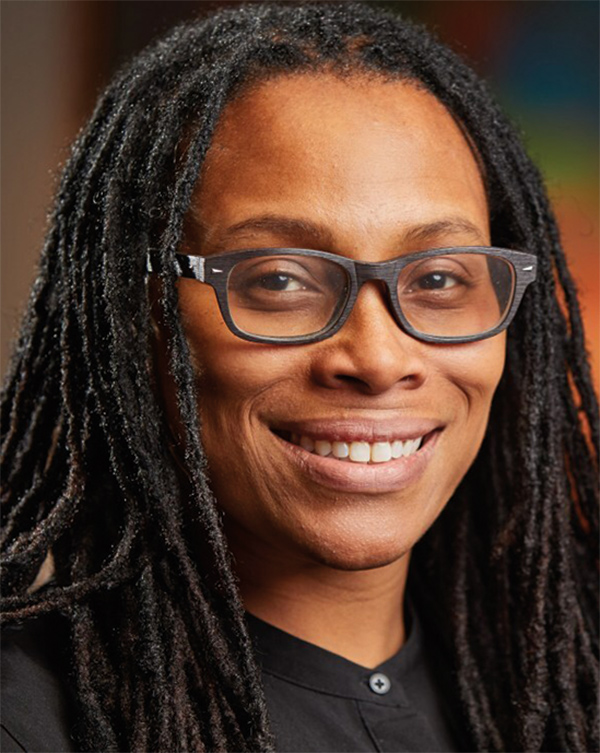
“Our country is facing an unprecedented time with COVID-19 cases accelerating nationwide,” Nunez-Smith said in a recent interview with Yale News. “Everyone is affected by this pandemic, yet the burden is disproportionate. We know communities of color are grieving at high rates and are facing substantial economic impact. The transition advisory board is setting a course for everyone in our country to experience recovery. I’m honored to help lead on that work and thank President-elect Joe Biden for the opportunity to serve.”
Nunez-Smith is one of two individuals connected to the COVID-19 advisory board with a degree from Swarthmore. Rebecca Katz ’95, who majored in political science and economics at the College, was selected as an adviser to the board. Katz, a professor and director of the Center for Global Health Science and Security at Georgetown University Medical Center, has expertise in pandemic planning. For more than a decade, she has worked to help design systems and implement policies to facilitate a coordinated response to potential microbial outbreaks and pandemics. From 2004 to 2019, Katz was a consultant to the Department of State, working on issues related to the Biological Weapons Convention, pandemic influenza, and disease surveillance.
Art Transcends

A Million-Dollar Mask Idea
The challenge, which was open to innovators ages 15–24, sought inventive new mask designs that addressed barriers to regular use, including comfort, functionality, and stylishness. The prototype created by Zunin’s team, Merlin! — one of five teams globally to reach the finals — was designed to reduce voice distortion and eliminate glasses fog while leaving 60% more of the face exposed.
A special major in applied philosophy in human factors, with a double major in engineering, Zunin was also a MakerSpace student technologist during his time at Swarthmore.
A Landing at Swarthmore
Growing up in an underserved community in Jacksonville, Fla., the linguistics major says he wasn’t challenged to pursue anything academically rigorous after high school. He viewed the military as a way to serve his country and access greater opportunities.
After some time in the service, Santry began to see he could also make a positive impact in a non-military role.
“The military gives you five years to think about what you want to do in life,” he says, which for Santry includes law school, followed by something related to public service or public policy.
“I chose Swarthmore because I believed that a liberal-arts education could make me a more ethical, rational, and driven person,” he says. “The small class sizes and attention to detail my professors pay to my assignments make me a better student. The thoughtful and outspoken opinions I hear from other students make me consider my conclusions more carefully.”
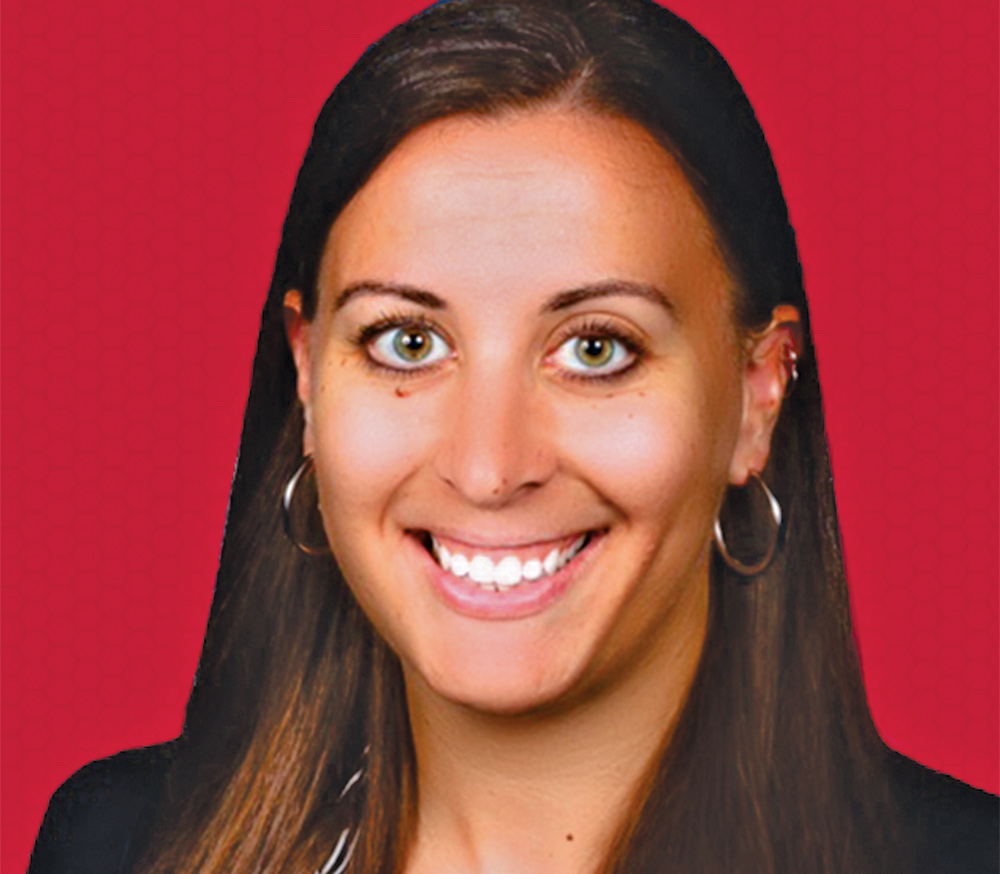
New associate
athletics director
Nematode
Neuroscience
That’s what Gurrein Madan ’17 is researching at the Massachusetts Institute of Technology. A Ph.D. student in brain and cognitive sciences, Madan recently received a School of Science MathWorks Fellowship to further her studies on gut-brain signaling in the C. elegans worm, research that could have practical implications for human health.
A transparent creature measuring just a millimeter in length, C. elegans features genes that have counterparts within the human brain. Gurrein’s research on the neurons that line the worm’s gut — on their response to food and to nervous-system feedback — could aid in the treatment of gut-brain signaling dysregulation, which has been linked to psychiatric disorders in humans.
“The general topic of how the gut is influencing the brain is a relatively new field,” Gurrein, a neuroscience major at Swarthmore, told MIT News. “I think there is a lot of space for novel, exciting contributions.”
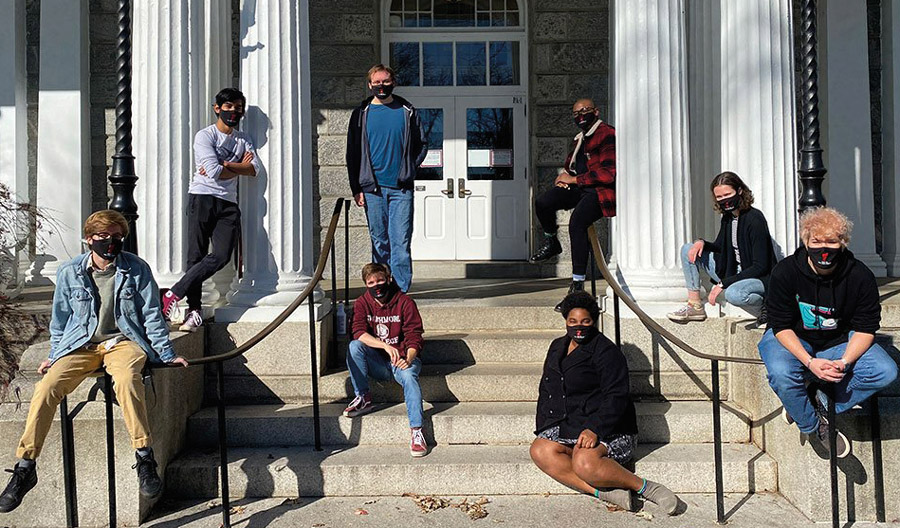
The Show Went On
Marie Inniss ’23, a native of Dallas, Texas, directed the project, which used the prompt “how to kill your husband in seven days” to solicit stories from student playwrights. The quartet of Reid Mansur ’23, Daniel Oakes ’24, Rosie Palmieri ’24, and Neil Steinglass ’23 starred in the production’s three live outdoor performances, staged in Scott Amphitheater while observing College policies regarding masks and social distancing.
Inniss initially believed that producing live theater was not feasible during the pandemic but wanted to see if creative solutions could be found under the unusual circumstances.
“Because of their masks, all the emotion conveyed had to be done through speech or through their eyes, which is a lot harder than using the entire face,” she says. “Staging was also a challenge: Everything had to be blocked so the actors were always 6 feet apart. I actually enjoyed it because it meant finding creative ways to portray closeness without anyone actually being close. It was cool to see choices the actors made within these parameters.”
“I learned to not be afraid to ask for help,” Inniss adds. “Having a big group of people working together to create art was amazing, especially during these isolating times. It taught us how to communicate and collaborate, which created a bond between us all.”
Other participants included stage manager Simon Herz ’23, assistant director Pablo Famodou ’23, producer Jules Lee-Zacheis ’24, and technical director Mason Hartley ’24.
The student playwrights were Herz, Lee-Zacheis, Mansur, Steinglass, Nooria Ahmed ’22, Benelli Amosah ’24, Jaxson Freund ’23, Grace Griego ’22, Addie Klingbeil ’24, Paige Looney ’23, Camryn Slosky ’22, and Alex Witherspoon ’23.
Renewed Academic Focus on Transformative Justice
The courses reflect broader curricular and co-curricular initiatives outlined in the President’s Fund for Racial Justice that will take place especially, but not exclusively, in local and regional communities.
Smith established the fund in response to a renewed movement against systemic racism, hate, and discrimination following the killing of George Floyd at the hands of police. As a groundswell of protests spread across the country, Smith wrote to the Swarthmore community: “We stand today with those who are suffering from the threat and the consequences of racial violence, economic despair, disease, and death. Inspired by our values and ideals, we must dedicate ourselves to fighting for justice; to caring for those who are sick, hungry, or hurting in mind or spirit; and to repairing our broken world.”
The fund was created in keeping with Swarthmore College’s steadfast commitment to diversity, equity, and inclusion, and its mission of educating students, promoting social justice, and serving the common good. It will support Swarthmore programs focused on transformative racial justice, such as the Chester Children’s Chorus and summer research opportunities through the Swarthmore Black Alumni Network, as well as initiatives with a focus on local and regional communities, all with the goal of improving the lives of Black and Brown people and other minority groups.
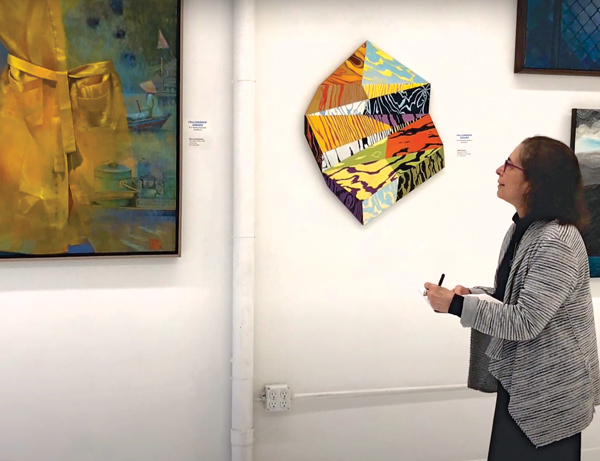
Art and the Environment
Njideka Akunyili Crosby ’04, H’19 and Dan Hammer ’07 were tapped this fall by the Los Angeles Museum of Contemporary Art for its new Environmental Council, the first for a major American art museum. Crosby, a world-renowned Nigerian-born visual artist and 2017 MacArthur Fellow, joins as a founding council member, while Hammer, a founder and partner at Earthrise Media and a climate fellow and senior adviser at X Development, joins as an expert adviser to the council.
In memoriam: Robert Roza And Larry WestPhal
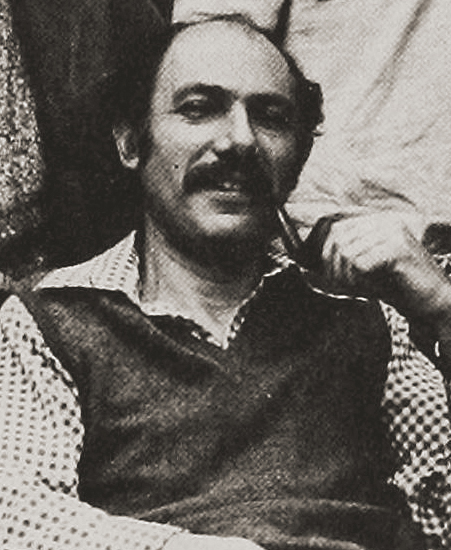 Robert Roza, the Susan W. Lippincott Professor Emeritus of French
Robert Roza, the Susan W. Lippincott Professor Emeritus of French
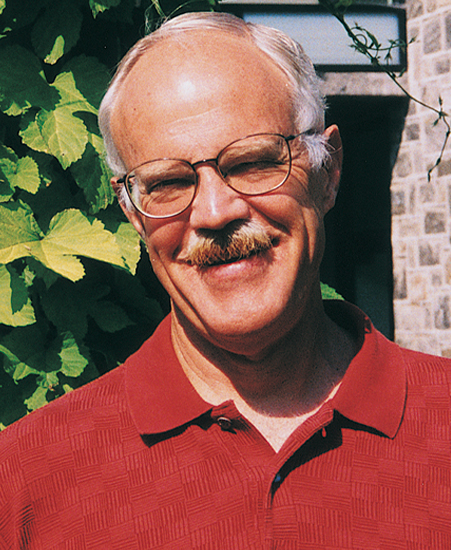 Larry Westphal, the J. Archer and Helen C. Turner Professor Emeritus of Economics
Larry Westphal, the J. Archer and Helen C. Turner Professor Emeritus of Economics
Swarthmore mourns the recent loss of two retired faculty members.
Robert Roza, the Susan W. Lippincott Professor Emeritus of French, died April 9 at age 88.
During his 33-year tenure at the College, Roza taught classes on symbolist poetry, modern drama, the 20th-century novel, Nouveau Roman, and Realism and Naturalism, among other subjects. He introduced French cinema to the curriculum, as well as co-taught a course on Marcel Proust and James Joyce.
“Bob’s intellectual curiosity had no bounds,” says longtime friend and colleague Philip Weinstein, the Alexander Griswold Cummins Professor Emeritus of English Literature. “Thanks to a capacity to consider life’s frightening aspects as well as its delightful ones, he approached books and ideas without preconceptions. No less, he possessed a — dare I say French? — delight in life’s bizarreness.”
Larry Westphal, the J. Archer and Helen C. Turner Professor Emeritus of Economics, died Nov. 11 at age 78.
Westphal came to Swarthmore in 1985 after 11 years at the World Bank, where he focused on the economic engines of emerging Asian economies as the youngest division chief in the Bank’s history. However, among Swarthmore students, Westphal was perhaps most infamously known for teaching Intermediate Microeconomics, a departmental institution in which, during weekly recitations, the 70 or more students were graded on solving problems in front of the class.
A passionate underwater diver, Westphal was also instrumental in the formation of the College’s short-lived scuba program and the Environmental Studies Program. He retired from the College in 2012.
“Larry was my adviser when I was a student here and has been an important mentor throughout my undergraduate and postgrad career,” says Assistant Professor of Economics Jennifer Peck ’06. “Over the years, I’ve been so grateful for his kindness and wisdom.”
 Robert Roza, the Susan W. Lippincott Professor Emeritus of French
Robert Roza, the Susan W. Lippincott Professor Emeritus of French
Robert Roza, the Susan W. Lippincott Professor Emeritus of French, died April 9 at age 88.
During his 33-year tenure at the College, Roza taught classes on symbolist poetry, modern drama, the 20th-century novel, Nouveau Roman, and Realism and Naturalism, among other subjects. He introduced French cinema to the curriculum, as well as co-taught a course on Marcel Proust and James Joyce.
“Bob’s intellectual curiosity had no bounds,” says longtime friend and colleague Philip Weinstein, the Alexander Griswold Cummins Professor Emeritus of English Literature. “Thanks to a capacity to consider life’s frightening aspects as well as its delightful ones, he approached books and ideas without preconceptions. No less, he possessed a — dare I say French? — delight in life’s bizarreness.”
 Larry Westphal, the J. Archer and Helen C. Turner Professor Emeritus of Economics
Larry Westphal, the J. Archer and Helen C. Turner Professor Emeritus of Economics
Larry Westphal, the J. Archer and Helen C. Turner Professor Emeritus of Economics, died Nov. 11 at age 78.
Westphal came to Swarthmore in 1985 after 11 years at the World Bank, where he focused on the economic engines of emerging Asian economies as the youngest division chief in the Bank’s history. However, among Swarthmore students, Westphal was perhaps most infamously known for teaching Intermediate Microeconomics, a departmental institution in which, during weekly recitations, the 70 or more students were graded on solving problems in front of the class.
A passionate underwater diver, Westphal was also instrumental in the formation of the College’s short-lived scuba program and the Environmental Studies Program. He retired from the College in 2012.
“Larry was my adviser when I was a student here and has been an important mentor throughout my undergraduate and postgrad career,” says Assistant Professor of Economics Jennifer Peck ’06. “Over the years, I’ve been so grateful for his kindness and wisdom.”